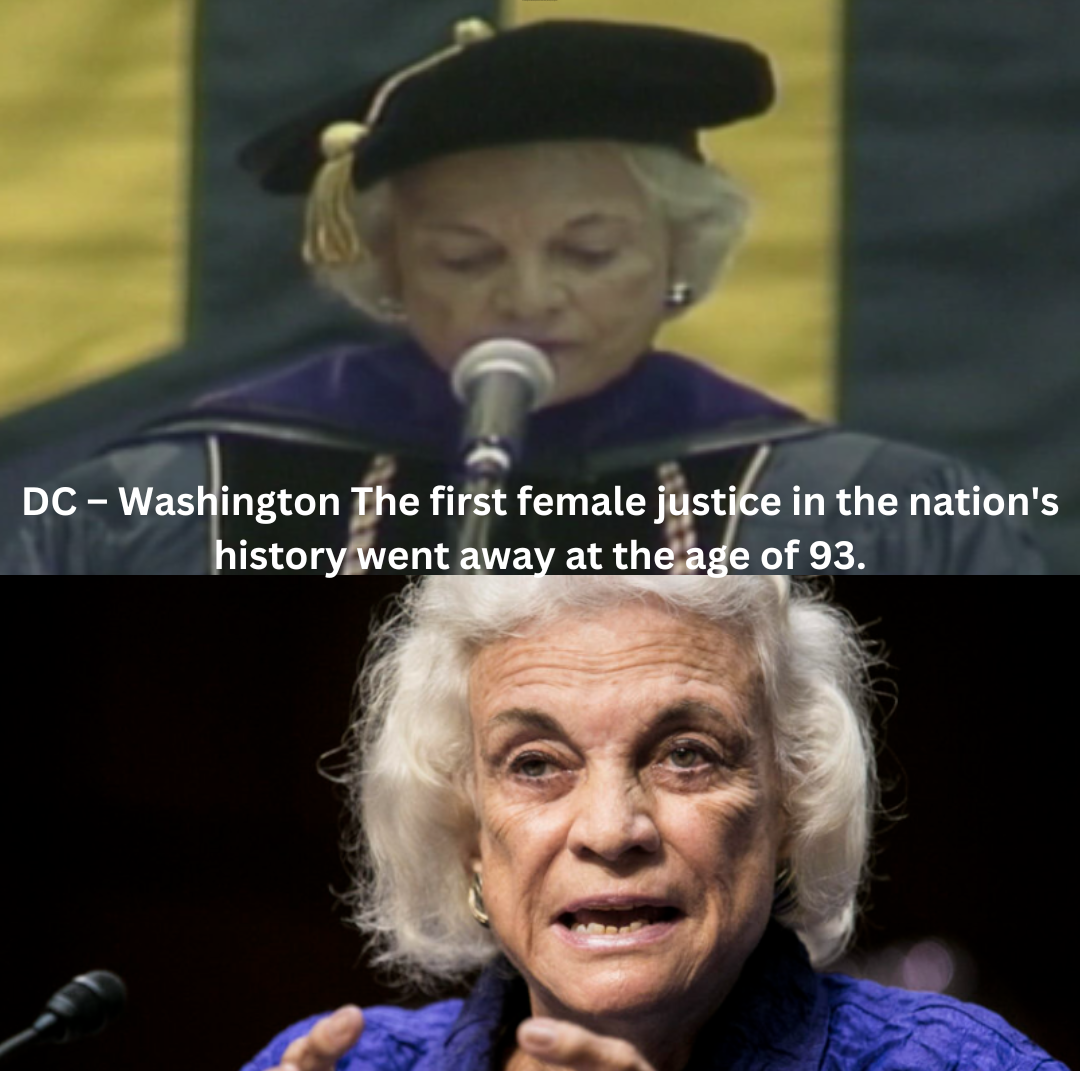According to a statement from the court, Sandra Day O’Connor, a trailblazing justice on the U.S. Supreme Court, passed away in Phoenix, Arizona, on Friday from complications associated with severe dementia,
most likely Alzheimer’s, and a respiratory ailment.
O’Connor was nominated by President Ronald Reagan in 1981, and in September of the same year, the whole Senate approved her, voting 99 to 0.
Throughout her nearly 25 years as an associate judge, the moderate O’Connor—who remained on the bench until her retirement in 2006—was frequently the deciding vote in significant cases that made it all the way to the Supreme Court.
During O’Connor’s tenure, the justices rendered decisions in a number of well-known cases, such as Planned Parenthood of Southeastern Pennsylvania v. Casey, a 5-4 ruling that upheld the constitutional right to an abortion but allowed states to impose certain restrictions, and Bush v. Gore, which decided the 2000 presidential contest in George W. Bush’s favour. In both instances, O’Connor agreed with the majority.
While promoting his biography “First: Sandra Day O’Connor,” journalist and historian Evan Thomas stated to the National Archives in 2019 that “she was consequential.”
According to Thomas, she cast the infamous “swing vote” 330 times in a 24-year period.
“And where it really mattered was in affirmative action and abortion rights,” he stated, citing a number of rulings such as Grutter v. Bullinger, which maintained the University of Michigan’s admissions policy that took race into account.
Justice Samuel Alito, who succeeded O’Connor in 2022, authored the majority judgement that overturned Roe v. Wade and Planned Parenthood v. Casey, thus abolishing federal abortion rights.
A “trailblazer” and “true public servant”
In a statement released on Friday, Chief Justice John Roberts noted that O’Connor “blazed a historic trail as our Nation’s first female Justice.”
She approached the task with unwavering resolve, undeniable skill, and frank communication. At the Supreme Court, we are saddened by the passing of a cherished coworker, a fiercely independent protector of the law, and a persuasive supporter of civics education. And we honour her lasting legacy as a genuine public servant and national treasure,” he declared.
According to a statement released by Kentucky Senate Minority Leader Mitch McConnell, the “nation mourns the passing of a towering figure in the history of American law.”
Sandra Day O’Connor led with an intelligence and determination that disarmed opposition, from her election as the first female Majority Leader in American legislative history to her confirmation as the first female Justice of the U.S. Supreme Court. The legacy of her part in historic rulings restoring federalism during her first several terms on the Court continues to reverberate in Constitutional jurisprudence, McConnell said. Her vote on the court frequently determined the majority in historic cases.
O’Connor cast critical votes in two 5-4 rulings in the mid-1990s and early 2000s that declared certain federal laws unconstitutional based on the Commerce Clause. These laws included the Violence Against Women Act and a statute that made it illegal to carry a pistol within 1,000 feet of a school.
O’Connor was referred to as the “conscience of the Court” by Senate Majority Leader Charles Schumer of New York.
Schumer declared that O’Connor “was one of the true historic figures of the 20th century” in a statement released on Friday. Sandra Day O’Connor frequently cast the deciding vote in favour of Americans’ rights in case after case—against discrimination, for women’s rights, clean air protection, and voting rights protection.
I express my condolences to the American people across for her loss today.

